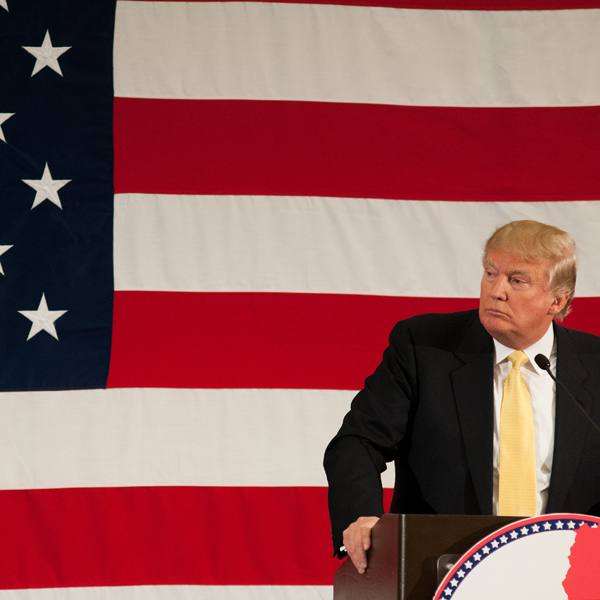What would happen if Trump administration ignored a court order? Law profs consider the issue

Photo of President Donald Trump by Andrew Cline / Shutterstock, Inc.
The Trump administration has complied with a nationwide injunction blocking the president’s executive order banning refugees and some immigrants from entering the United States.
But that hasn’t stopped some publications from considering what would happen if President Trump or administration officials refused to comply with a court order. Slate and the Washington Post consider the possibilities.
A judge who believes federal officials are not obeying a court order could ask the government to show cause why it shouldn’t be held in contempt of court, constitutional experts told the Post and Slate.
In the contempt hearing, the judge would try to determine who is responsible for noncompliance, according to Chicago-Kent College of Law professor Carolyn Shapiro. The government officials before the court “would likely have to produce records of who up the chain of command is directing them to act,” Shapiro told Slate. “And those higher-level people could be held in contempt.”
But would a judge actually hold the officials in contempt? University of Virginia law professor Doug Laycock doubted it would come to that. “Judges are much more likely to threaten sanctions than to actually impose them,” he told Slate. Typically a judge “tries to keep ramping up the pressure, but tries to avoid reaching the point where he has no choice but to send someone to jail.”
If Trump himself were held in contempt, there would be appeals. And a final decision would rest with the U.S. House of Representatives, said Georgia State University law professor Daniel Franklin. He tells the Post that, in his opinion, contempt of court is a “high crime or misdemeanor” that would be subject to impeachment. “Whether or not the House of Representatives would see it that way is another question,” he said.
The Post considered whether other presidents have ignored court orders. Most cited is President Andrew Jackson’s reaction to a Supreme Court decision striking down a Georgia law that allowed for the seizure of Native American lands. Jackson supported Georgia’s claim to sovereignty over the land, and either ignored the decision or declined to get involved, according to the Post. This led to what’s known as the Trail of Tears, in which about a quarter of the Cherokee people forced by the U.S. Army to travel from Georgia to territory west of the Mississippi River perished, according to the Cherokee Nation.
Some have attributed this statement to Jackson about the justice who wrote the Supreme Court decision, though it’s not clear if Jackson actually said it: “John Marshall has made his decision; now let him enforce it.”



